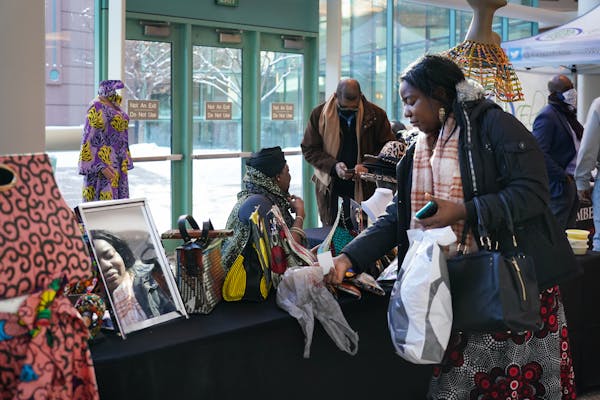When you see injustice, speak up.
That was Laura Coates' call to action during her keynote address at the Twin Cities annual Dr. Martin Luther King Jr. Holiday Breakfast. The St. Paul native — now a CNN host and senior legal analyst — cited the difference that speaking out had made in her own community when Darnella Frazier filmed the police killing of George Floyd.
"It led to a cry, a call, a demand for action — all because she saw something and said something," Coates said at the virtual event organized by General Mills and the United Negro College Fund.
Coates, also an author, attended law school at the University of Minnesota and practiced locally before enforcing voting rights as a trial attorney for the U.S. Department of Justice and serving as a federal prosecutor in Washington, D.C.
She recalled how, when people learned she was from Minnesota, they used to say they thought only Kirby Puckett and Prince lived here. After Floyd's killing in 2020, Coates noted, her home state was "under a microscope. … We right now in Minnesota are at the seat, the helm, the center of every board room conversation."
As people across the Minnesota honored King's legacy Monday, Coates and other leaders encouraged citizens to continue his push for civil rights nearly 54 years after he was assassinated in Memphis.
"I wholeheartedly believe that the civil rights movement is not a finite period in time," Coates said. "We know that every single day as we continue to see all of the challenges that are before us that it's part of an ongoing movement."
Coates believes the younger generation will bring about the transformation needed, and she evoked King's reference to the "fierce urgency of now" from his iconic "I Have a Dream" speech in front of the Lincoln Memorial in 1963.
"We all know that there is a fierce sense of urgency to do more with what we have in front of us," Coates said.
She urged people to follow the guidance in a letter King wrote from jail in Birmingham, Ala., "where he spoke about how shallow misunderstanding from people of goodwill is more frustrating than absolute misunderstanding from people of ill will. We cannot have a shallow understanding of what it means to have justice, what it means to have a call to action, what it means to have the depth of the demand of being bold, bold enough to not sleep in, to not think it's a day off, to not allow people the luxury of abandoning the causes or getting off at the exit ramp because it's more convenient than staying the course."
Meanwhile, at the Powderhorn Park Recreation Center in Minneapolis, dozens of people gathered to honor King as they ate lunch from the Afro Deli and watched musicians perform. They heard from several community leaders advocating for the John R. Lewis Voting Rights Advancement Act, while members of the King family marched in D.C. and demanded passage of the legislation.
Tabitha Montgomery said she wants to make sure that voting in this country is not only easy to do but something that people believe is part of their unalienable rights. She maintained that King's example should inspire other causes, too.
"I think that ultimately, the spirit of Dr. King's life, legacy and impact is something we all are humbled by, and yet I think for me personally it's something that should drive action," said Montgomery, who is executive director of the Powderhorn Park Neighborhood Association. That means considering "what are we doing as an organization or as an individual to advocate for the things that our community needs, whether it means housing justice or equitable development or wholistic approaches to livability and safety."
"We must commit to no longer sit on the sidelines as our community members continue to suffer, and to lead the way as MLK Jr. did," said newly elected Minneapolis City Council Member Jason Chavez, who represents Powderhorn Park's ward.
He said the battle goes beyond the ballot box.
"I, too, have a dream that one day every single person will be able to live in safe and dignified housing, that our families will not have to choose between paying the rent or providing food for their families, that our neighborhoods will have clean air and water, and that everyone is safe," Chavez said. "It's a vision [King] would have fought for if he was here today."

This retired journalist changed professional wrestling from Mankato

All-Metro Sports Awards: Here are the 2023 winners

